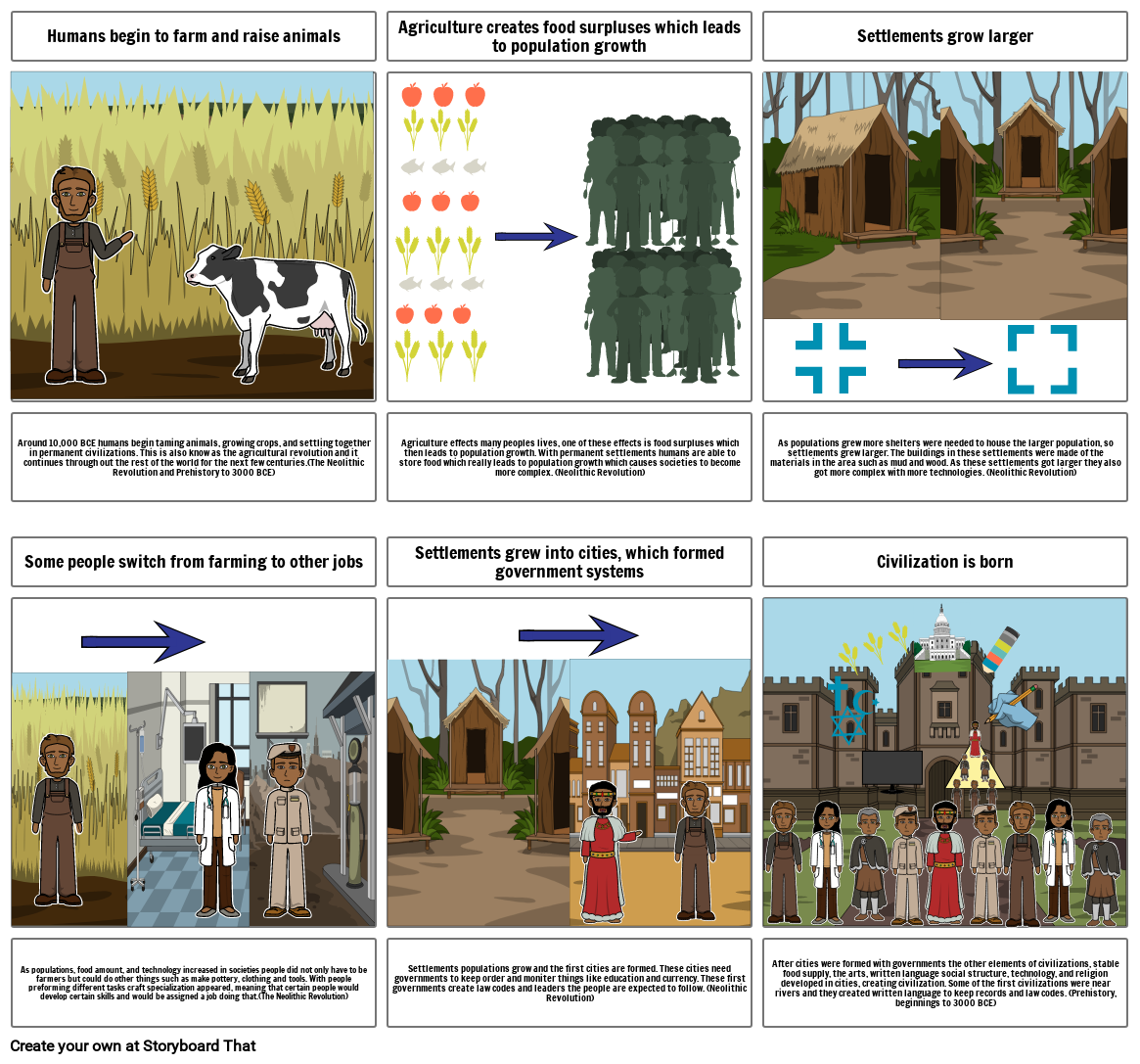Unknown Story

Süžeeskeem Tekst
- Humans begin to farm and raise animals
- Agriculture creates food surpluses which leads to population growth
- Settlements grow larger
- Around 10,000 BCE humans begin taming animals, growing crops, and settling together in permanent civilizations. This is also know as the agricultural revolution and it continues through out the rest of the world for the next few centuries.(The Neolithic Revolution and Prehistory to 3000 BCE)
- Some people switch from farming to other jobs
- Agriculture effects many peoples lives, one of these effects is food surpluses which then leads to population growth. With permanent settlements humans are able to store food which really leads to population growth which causes societies to become more complex. (Neolithic Revolution)
- Settlements grew into cities, which formed government systems
- As populations grew more shelters were needed to house the larger population, so settlements grew larger. The buildings in these settlements were made of the materials in the area such as mud and wood. As these settlements got larger they also got more complex with more technologies. (Neolithic Revolution)
- Civilization is born
- As populations, food amount, and technology increased in societies people did not only have to be farmers but could do other things such as make pottery, clothing and tools. With people preforming different tasks craft specialization appeared, meaning that certain people would develop certain skills and would be assigned a job doing that.(The Neolithic Revolution)
- Settlements populations grow and the first cities are formed. These cities need governments to keep order and moniter things like education and currency. These first governments create law codes and leaders the people are expected to follow. (Neolithic Revolution)
- After cities were formed with governments the other elements of civilizations, stable food supply, the arts, written language social structure, technology, and religion developed in cities, creating civilization. Some of the first civilizations were near rivers and they created written language to keep records and law codes. (Prehistory, beginnings to 3000 BCE)
Loodud üle 30 miljoni süžeeskeemi

